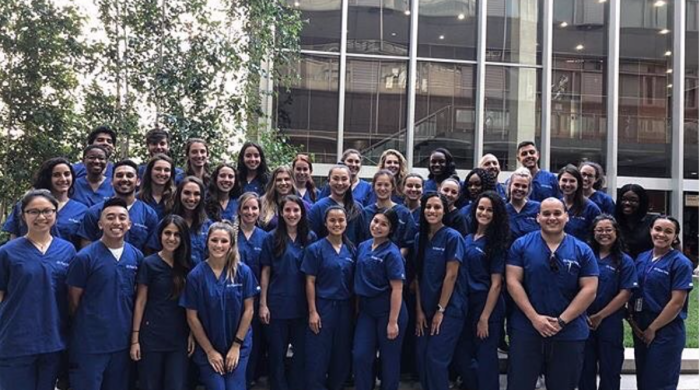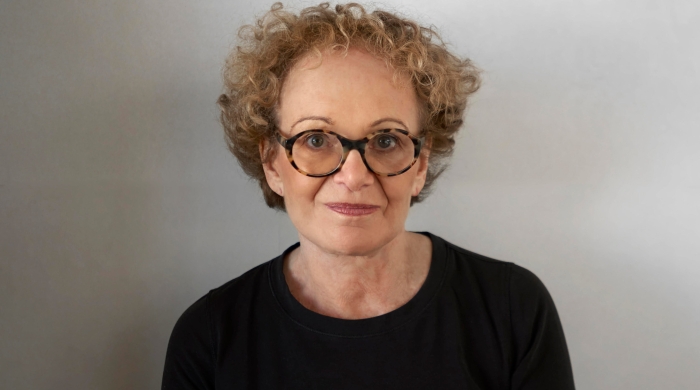
Erin Dotzel (MS '19) is a Speech@NYU alum of the Department of Communicative Sciences and Disorders (CSD), a Marine Corps veteran, and a mother of three working as a speech-language pathologist (SLP) at a primary school in Texas.
After transitioning to working remotely in light of COVID-19, Erin jumped into action to create a teletherapy course template for her school district to ensure students could continue to receive critical speech and language services at home.
We connected with Erin to learn more about her experience developing this content and how her online education shaped her approach to providing teletherapy services.
Could you describe what your current role looked like before COVID-19?
Prior to the pandemic, I provided direct services as a school-based speech-language pathologist with a fluctuating caseload of 45 students in Kindergarten through 2nd grade. Several of my students are eligible for special education services for multiple disabilities that include autism, cognitive impairment, traumatic brain injury, and epilepsy. Typically, I conducted in-person treatment using individual and group therapy sessions targeting skills related to students’ language comprehension, language expression, fluency, and more.
Currently, I am providing individual teletherapy sessions with students and their families.
Why is transitioning to teletherapy during this time so important?
Teletherapy is a solution to providing my students with the support they need in order to succeed academically now that direct services are no longer available. Under the Individuals with Disabilities Education Improvement Act, educators are required to provide a “free appropriate public education” even during school closure. However, my students face challenges that make learning remotely difficult without the support I typically provide, which can include visual or gestural cues to reinforce their understanding of a topic.
How did your experience as an online student prepare you to develop teletherapy materials and deliver sessions remotely?
While teachers had their remote course content generated by a team of curriculum specialists and a technical support team, related services providers such as speech-language pathologists, occupational therapists, and physical therapists were on their own to decide how to best meet the needs of their students.
Although I had never used the learning management system my school district selected for virtual education, my graduate experience as a full-time Speech@NYU student afforded me the confidence and technical knowledge to quickly learn how to use it. I understood how to navigate a virtual learning environment and how to explain the system in simple terms to others. I also knew what support parents would need because I could put myself in their shoes as virtual learners.
What does your template course look like content-wise?
I made the decision to give parents access to a wide range of resources beyond their individual child’s specific therapy goals. I grew up in the generation of NBC’s “The More You Know” programming which widely promoted the importance of education and created four broad content topic areas in that spirit: speech articulation; receptive and expressive language; pragmatic language; and augmentative and alternative communication. After uploading my classroom content to the learning management system, other SLPs in the district could import my entire course – which three full-time speech-language pathologists and five speech-language pathology assistants (SLPAs) have so far.
I would be remiss if I didn’t give credit to a few resources that helped me build my course template, including a BrIQht Ideas webinar on repurposing in-person therapy materials for teletherapy and the Informed SLP for offering free access to research evidence supporting teletherapy.
What has been the impact of your efforts so far? What are you most proud of?
70 percent of families have accepted invitations to my online course, meaning those students immediately have access to therapy resources at home. I'm also proud to say that my session participation rate with families is one of the highest in the district.
But I’m most proud of the parents who are stepping outside of their comfort zones to support therapy sessions. I’ve received positive feedback from families including text messages and emails about progress students are making at home. My favorite success story comes from a parent of a student with autism that shared that her son said his sister’s nickname for the first time, as well as his first sentence: “Let’s do this.”


